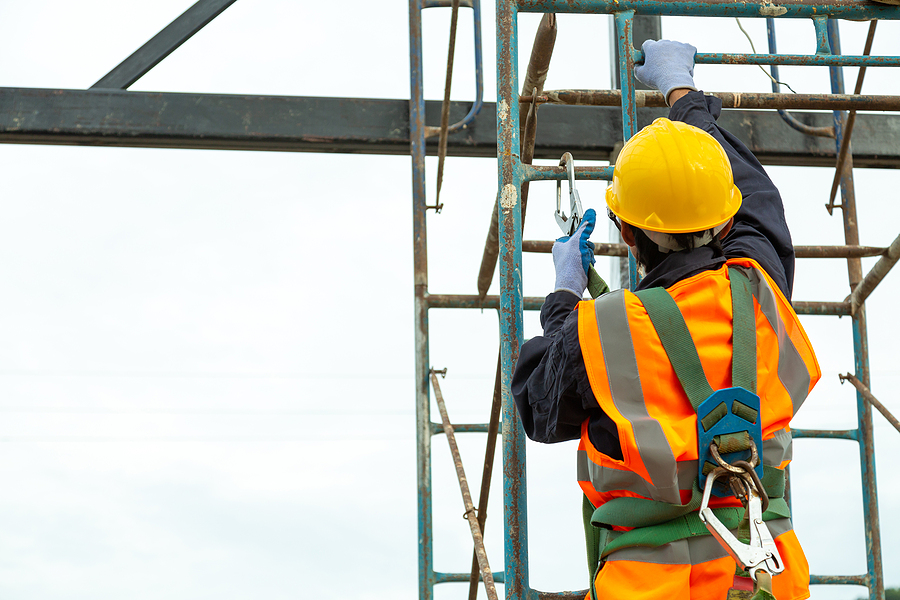Why Fall Protection is Critical for Construction Companies and Their Workers

Construction work is always dangerous and fall protection is among the most significant elements in the practice, since the workers face risks of high places.
According to the Occupational Safety and Health Administration (OSHA), falls are one of the leading causes of death on construction sites, claiming the lives of hundreds of thousands and killing thousands of workers annually.
Fall protection is legally mandated, but also an ethical and commercial obligation for a construction company. Here are some of the reasons why such a defense tool is worth having-
1. Preventing Workplace Fatalities and Serious Injuries
Fall protection is saving lives and property. Construction workers have a tendency to get injured from ladders, scaffolding, roofs or from sharp edges.
Harnesses, fences, safety nets and fall arrest systems are just some of the tools available to guide life or death. Through full fall protection systems, workers will not be killed or seriously injured at the site of their work, creating a workplace culture of care.
2. Aligning with OSHA Regulations
OSHA mandates fall protection regulations on construction sites in the United States under 29 CFR 1926 Subpart M (Fall Protection).
Fall protection at six feet is a requirement of OSHA in construction as well as other areas, such as roof, scaffolding (general requirement), and steel erecting. Not following the laws could risk your business hefty financial fines, site closures, or lawsuits.
Not only does fall protection training help companies ensure their employees are following the law, but it also eliminates the chance of lawsuits stemming from a employee injury or fall.
3. Reducing the Cost of In-the-Work Mishaps
Workplace accidents have financial implications for construction firms. Costs adding up to: medical expenses, worker’s compensation, lawyer’s fees, lost work, and lost equipment.
The right fall protection also helps save you money, with fewer accidents, injuries and claims. Having a good safety record can also help save costs over the long run because claim-reduced companies pay less for insurance and can negotiate more favorable terms with the insurance company.
4. Improving Employee Motivation and Effectiveness
Worker security directly increases worker trust and improves performance when it comes to their work. Fall protection will ensure that employees are listened to by their company and be loyal and morale-boosting.
Conversely, lack of safety in place makes team members anxiety-prone and leads to lower morale and high turnover that may have consequences on the quality and timing of projects.
5. Addressing the Unique Hazards of Construction Work
Buildings tend to be described as shifting, unpredictable spaces. Workers can run into a host of problems – the lack of level ground, the irregularity of scaffolding, weather, or just the angle of a building.
In fact, fall protection is purpose-built to address these risks in a number of ways. Guardrails (which are customizable to the task), personal fall-deterrent devices or access ladders are some examples.
6. Promoting a Culture of Safety
Purchasing a quality fall protection system also makes it clear that first, second and third is safety. It ensures a culture of safety for all, from the lowest worker to the highest. Education about falling hazards increases the awareness of other safety issues at work and contributes to a safer, more responsible culture as a whole.
7. Building Reputation for Business
An established construction company with an outstanding safety record and stringent fall protection procedures will be more appealing to a client, partner or potential employee.
This safety mindset can also serve as a competitive advantage in making projects more feasible and in finding and retaining the right talent. This is a crucial part of any organization that has success in a business where safety might very well mean the difference between a contract and a bid.
Final Thoughts
Construction workers are valuing fall protection as saving lives, complying with law, saving money, and fostering a positive safety culture.
If employers are paying attention to fall protection, then it shows that they value their employees and provides a safer, more efficient, and law-abiding workplace. The real benefits of fall protection is therefore protecting financial investment in worker and business safety.
